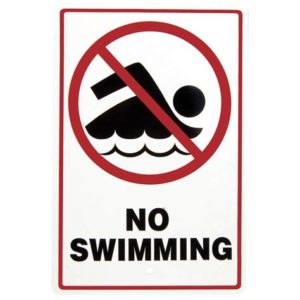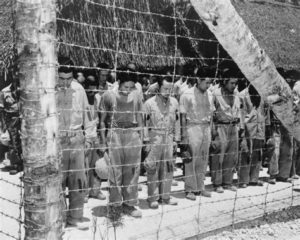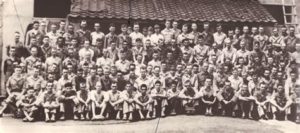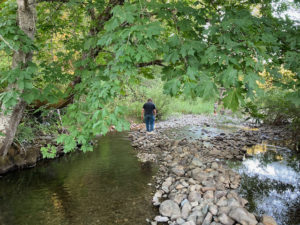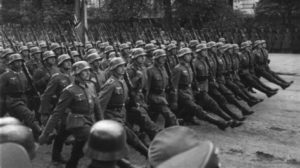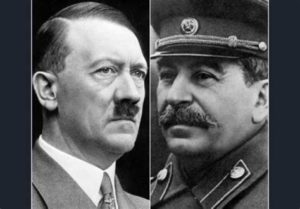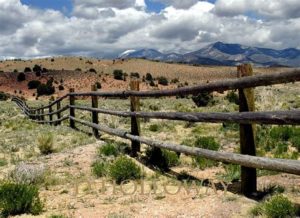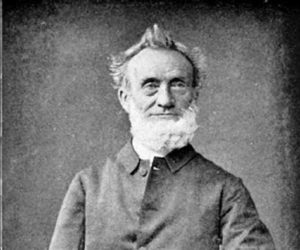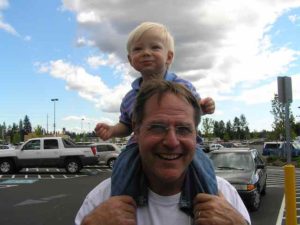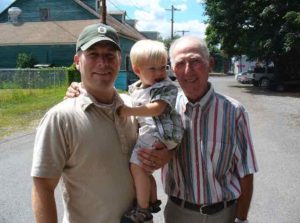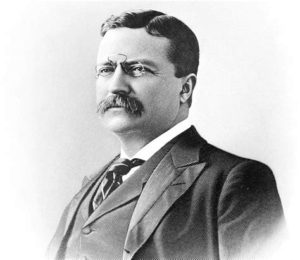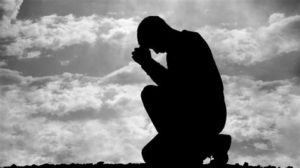Part 1
“For I am not ashamed of the gospel, for it is the power of God for salvation to everyone who believes.” (Romans 1:16a)
 We are not all evangelists, but we can all evangelize. Evangelism has gotten its share of negative press, especially in recent years. Opposition to Christianity has gotten more and more vehement, and as a consequence, those who openly profess Christ are more openly ridiculed. As a matter of self-preservation in an unforgiving society, more and more Christians lie low in spiritual foxholes, popping out when only friendlies are approaching. We may not all be evangelists, but we are all witnesses and ambassadors. We have an obligation to walk in the Word daily and be quick to share the Word when our actions provoke others to ask about the Word.
We are not all evangelists, but we can all evangelize. Evangelism has gotten its share of negative press, especially in recent years. Opposition to Christianity has gotten more and more vehement, and as a consequence, those who openly profess Christ are more openly ridiculed. As a matter of self-preservation in an unforgiving society, more and more Christians lie low in spiritual foxholes, popping out when only friendlies are approaching. We may not all be evangelists, but we are all witnesses and ambassadors. We have an obligation to walk in the Word daily and be quick to share the Word when our actions provoke others to ask about the Word.
I recently read an article that outlined many of the mistakes that gospel-givers make in the world today. If we can avoid these stumbles, we will find ourselves in a better position to present the gospel when the opportunity occurs. It is easy for us to become offensive to others and even easier to be defensive, but the true key is that we be responsive.  We need to lead a life that says the words we cannot say until the time is right. Our gospel-giving actions can start immediately after meeting someone, the words may need to wait- but not too long. Peter tells us to, “Keep your behavior excellent among the Gentiles, so that in the thing in which they slander you as evildoers, they may because of your good deeds, as they observe them, glorify God in the day of visitation.” ( 1 Peter 2:12)
We need to lead a life that says the words we cannot say until the time is right. Our gospel-giving actions can start immediately after meeting someone, the words may need to wait- but not too long. Peter tells us to, “Keep your behavior excellent among the Gentiles, so that in the thing in which they slander you as evildoers, they may because of your good deeds, as they observe them, glorify God in the day of visitation.” ( 1 Peter 2:12)
Evangelism should not be a hammer that hurts, scares, or shames someone into belief. On the other hand, evangelism should not bribe, manipulate, or trick someone into belief. Bad evangelism is worse than no evangelism. Well over half of hard-core atheists purport to have had a close relationship with the church earlier in their lives. The meaning of the word “close” is up for interpretation, but for argument sake, let’s take it at face value. If many atheists have spiritual backgrounds, what went wrong along the way? There can be a lot of different reasons, as many there are “apostates,” but we need only to be concerned with reasons that we might be guilty of ourselves.
 I do not appreciate the ministry of the Jehovah Witnesses that come to my door. I truly believe they are propagating a false message. I also do not enjoy their approach. I am uncomfortable with them (even though I do converse with them) because they preconceive my “wrongness” and it is apparent from their very first words. They are not excited about their faith and seem more excited about my faithlessness. In all honesty, they are not especially concerned about my relationship with God, but my relationship with their religion. If I show excitement about my faith and relationship with God, they are disappointed and vamoose pretty quickly. I think I should avoid treating others in the ways that I see JWs treating me. I think they miss the point of what John was saying about John the Baptist (and us) when it comes to evangelism. Jesus should be the key.
I do not appreciate the ministry of the Jehovah Witnesses that come to my door. I truly believe they are propagating a false message. I also do not enjoy their approach. I am uncomfortable with them (even though I do converse with them) because they preconceive my “wrongness” and it is apparent from their very first words. They are not excited about their faith and seem more excited about my faithlessness. In all honesty, they are not especially concerned about my relationship with God, but my relationship with their religion. If I show excitement about my faith and relationship with God, they are disappointed and vamoose pretty quickly. I think I should avoid treating others in the ways that I see JWs treating me. I think they miss the point of what John was saying about John the Baptist (and us) when it comes to evangelism. Jesus should be the key.  “There came a man sent from God, whose name was John. He came as a witness, to testify about the Light, so that all might believe through him. He was not the Light, but he came to testify about the Light.” (John 1:6-8)
“There came a man sent from God, whose name was John. He came as a witness, to testify about the Light, so that all might believe through him. He was not the Light, but he came to testify about the Light.” (John 1:6-8)
Here are a few things I think would be good for us to do that our tie-clad door-to-door friends are not doing. First of all, our delivery should not make God secondary to anything. We don’t want to promote our church, our denomination, ourselves, or even our pet doctrines. We are not salesmen  whose smooth words promote themselves more than the product. It needs to be all about Jesus. It doesn’t even need to be about every theological question regarding Christ. We don’t need to bring up the deep questions that even mature Christians disagree on or sideline arguments that play no role in salvation. We need to focus on the person of Christ. It is Him and Him alone that salvation lies…we should try not to get sidetracked on issues that are for another time. Jesus is for now, those will be for later.
whose smooth words promote themselves more than the product. It needs to be all about Jesus. It doesn’t even need to be about every theological question regarding Christ. We don’t need to bring up the deep questions that even mature Christians disagree on or sideline arguments that play no role in salvation. We need to focus on the person of Christ. It is Him and Him alone that salvation lies…we should try not to get sidetracked on issues that are for another time. Jesus is for now, those will be for later.
Part 2 next week














